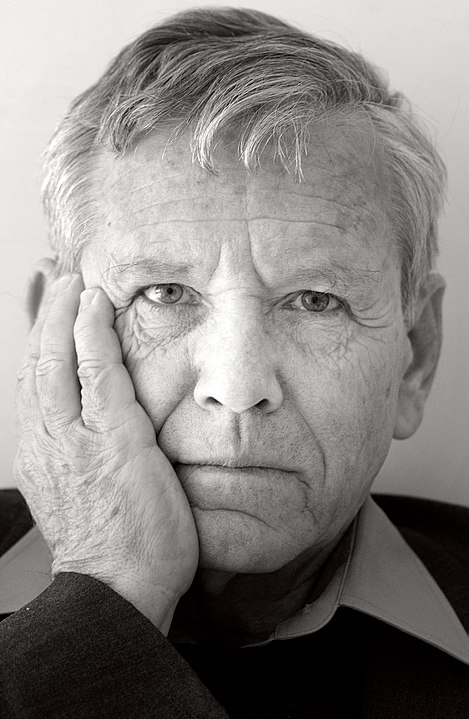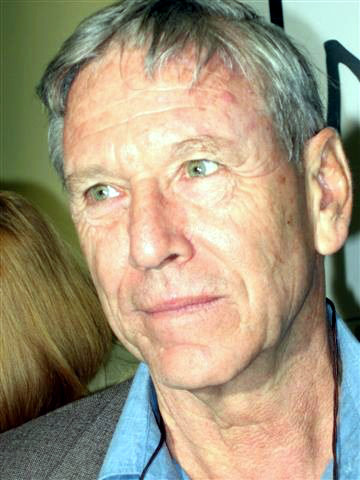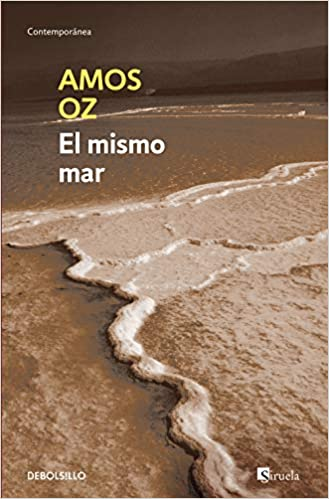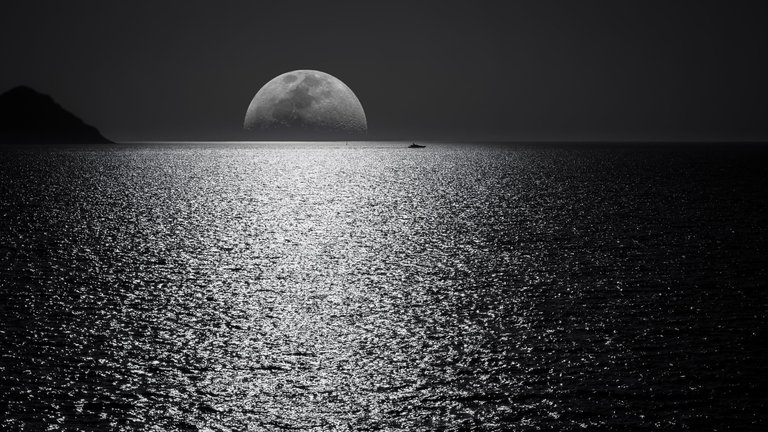Amos Oz, o el decir de la conciencia | Amos Oz, or the say of conscience
Un autor de gran importancia que fuera muy publicado, traducido y reconocido en vida es Amos Oz, escritor israelí que naciera el 4 de mayo de 1939 en Jerusalén. Quizás entre los usuarios de esta plataforma no sea muy conocido. Su obra incluye alrededor de una 15 novelas, una autobiografía novelada (Una historia de amor y oscuridad, 2002), varias colecciones de cuentos y libros que reúnen ensayos sobre literatura y artículos periodísticos sobre temas políticos donde destaca el conflicto palestino-israelí.
============
An author of great importance who was widely published, translated and recognized during his lifetime is Amos Oz, an Israeli writer born on May 4, 1939 in Jerusalem. He may not be well known among the users of this platform. His work includes about 15 novels, a novelized autobiography (A Story of Love and Darkness, 2002), several collections of short stories and books that bring together essays on literature and journalistic articles on political issues where the Palestinian-Israeli conflict stands out.

Habría que destacar su posición pacifista (fue líder del movimiento “Paz ahora”), recriminó ciertas actuaciones bélicas del gobierno israelí y abogó por la necesidad de un Estado Palestino que coexistiera con el Estado de Israel, como se lee en esta cita:
No hay otra solución porque los palestinos no se van a ir, no tienen adónde. Los judíos israelíes tampoco nos vamos a ningún lugar, no tenemos adónde. No podemos ser una gran y alegre familia porque no somos una familia. Somos dos familias muy infelices. Debemos dividir la casa en dos apartamentos más pequeños. No hay otra opción.
Su posición a favor de la paz le hizo merecedor de varios reconocimientos como el Premio Libertad de Expresión (Noruega) y la Medalla Internacional de la Tolerancia (Polonia), ambos en el 2002.
Pero también recibió importantes premios por su obra literaria, entre ellos, el Premio Israelí de Literatura (1988), el Premio Príncipe de Asturias de Literatura (2007), el Premio Franz Kafka (2013). Estuvo nominado varias veces al Premio Nobel de Literatura.
============
It should be noted his pacifist position (he was a leader of the "Peace Now" movement), recriminated certain warlike actions of the Israeli government and advocated the need for a Palestinian State that would coexist with the State of Israel, as can be read in this quote:
There is no other solution because the Palestinians are not going to leave, they have nowhere to go. We Israeli Jews are not going anywhere either, we have nowhere to go. We can't be one big, happy family because we are not a family. We are two very unhappy families. We have to divide the house into two smaller apartments. There is no other option.
His pro-peace stance earned him several awards such as the Freedom of Expression Award (Norway) and the International Medal of Tolerance (Poland), both in 2002.
But he also received important awards for his literary work, among them, the Israel Prize for Literature (1988), the Prince of Asturias Award for Literature (2007), the Franz Kafka Award (2013). He was nominated several times for the Nobel Prize for Literature.

Accedí a unos pocos de sus libros, como su bella novela No digas noche (1994). Pero de esos pocos el que más me cautivó es un libro de gran valor literario, que es una fusión entre poesía y narrativa, con textos a veces al modo de versos u otros como prosa. Me refiero a El mismo mar, al cual me referiré a continuación a partir de dos o tres textos.
Además de contener esa cautivante propuesta lírico-épica (por decirlo en síntesis), tiene la cualidad de presentarnos una historia polifónica, pues está contada por unos ocho personajes (si identifico bien sus voces) en lugares y tiempos diferentes, cuyas vidas se interrelacionan de algún modo por el deseo, la separación, en suma, el amor. Y el otro aspecto fascinante de este pequeño gran libro (en la edición español, unas 280 páginas) es la presencia de lo que en teoría literaria se denomina autorreflexividad, es decir, en el texto el autor se representa a sí mismo como personaje –el narrador– y refiere a la escritura que estamos leyendo.
(Nota: transcribo tal cual en la edición del libro que poseo)
============
I had access to a few of his books, such as his beautiful novel Do not say night (1994). But of those few, the one that captivated me the most is a book of great literary value, which is a fusion between poetry and narrative, with texts sometimes in the form of verses or others as prose. I am referring to The same sea, which I will refer to in the following two or three texts.
Besides containing that captivating lyrical-epic proposal (to put it in a nutshell), it has the quality of presenting us with a polyphonic story, since it is told by about eight characters (if I identify their voices correctly) in different places and times, whose lives are somehow interrelated by desire, separation, in short, love. And the other fascinating aspect of this great little book (in the Spanish edition, about 280 pages) is the presence of what in literary theory is called self-reflexivity, that is, in the text the author represents himself as a character -the narrator- and refers to the writing we are reading.
(Note: I transcribe as it is in the edition of the book that I own)

Cada mañana sale a su encuentro
El narrador por su parte, en estos días de finales
de septiembre, se levanta cada mañana
antes de las cinco y escribe una o dos horas
hasta que llega el periódico. Después
sale a comprobar si ha cambiado algo en el desierto.
Hasta la fecha no ha cambiado nada.
Las montañas al este están selladas.
Cada ladera está en su sitio. Como
ayer. Como anteayer. Un lagarto, un dinosaurio de bolsillo,
tampoco él ha cambiado de posición. El narrador está
interesado en anotar todo eso, en intentar aclarar
y poner por escrito aquí lo que había y lo que hay.
Hay que llamar a las cosas por su nombre
o por otro nombre que les infunda una nueva luz
o que, a veces, les dé sombra. Han pasado ya cincuenta años:
en Jerusalén, en la calle Zacarías, en un piso
de dos habitaciones, había un colegio privado
propiedad de la señora Yonina. Mi maestra,
la señorita Zelda, la que años más tarde escribió
los poemas “La espectacular diferencia” y “El invisible Carmel”,
una vez, un día de invierno, me explicó con ternura:
si dejaras alguna vez de hablar tal vez las cosas podrían
hablarte alguna vez a ti. Años más tarde
encontré en uno de sus poemas
la promesa de “que árboles y piedras responderán Amén”.
Una espectacular diferencia prometió entre piedras y árboles
a quien esté dispuesto a escuchar.
***
Every morning he goes out to meet you
The narrator, for his part, in these days at the end of September, wakes up each morning
September, gets up every morning
before five o'clock and writes for one or two hours
until the newspaper arrives. Then
then goes out to see if anything has changed in the desert.
So far nothing has changed.
The mountains to the east are sealed.
Every slope is in place. Like
as it was yesterday. As the day before yesterday. A lizard, a pocket dinosaur,
he too has not changed his position. The narrator is
interested in writing all that down, in trying to clarify and put in writing
and put in writing here what there was and what there is.
You have to call things by their name
or by another name that infuses them with a new light
or, sometimes, shadows them. Fifty years have passed:
in Jerusalem, on Zechariah Street, in a two-room apartment
in a two-room apartment, there was a private school
owned by Mrs. Yonina. My teacher,
Miss Zelda, the one who years later wrote the poems
the poems "The Spectacular Difference" and "The Invisible Carmel",
once, one winter's day, tenderly explained to me:
if you would ever stop talking perhaps things could
talk to you sometime. Years later
I found in one of her poems
the promise "that trees and stones will answer Amen".
A spectacular difference promised between stones and trees
to whoever is willing to listen.
Es un ejemplo claro de la autorreflexividad aludida. No solo se hace conciencia del propio acto de la narración, sino que, además, se asoma una cierta poética: anotar lo que se experimenta con una "nueva luz" y la necesidad de la escucha.
It is a clear example of the aforementioned self-reflexivity. Not only is there an awareness of the act of narration itself, but also a certain poetics: noting down what is experienced in a "new light" and the need to listen.

El silencio
También tú. Y todos. Todo Bat Yam se llenará
de gente nueva y también ellos
cuando les toque estar solos por las noches se quedarán
asombrados al intentar comprender lo que la luna le hace
al mar y cuál es el propósito del silencio. Respuesta
tampoco tendrán ellos. Todo esto se mueve
más o menos en el vacío. El propósito del silencio es silencio.
***
Silence
So are you. And everyone. All of Bat Yam will be filled
with new people and so will they
when it's their turn to be alone at night, they will be
will be astonished as they try to understand what the moon does to the sea
to the sea and what the purpose of silence is. Answer
neither will they. All this moves
more or less in a vacuum. The purpose of silence is silence.
Como cerrando el acto polifónico que hemos leído (este es uno de los últimos textos del libro), una voz, de algún modo omnisciente, nos devuelve a la normalidad de la vida y a sus sorpresas, en la que el misterio de la conjunción de la naturaleza (luna y mar) parece formular la necesidad del silencio para la escucha.
As if closing the polyphonic act we have read (this is one of the last texts of the book), a voice, somehow omniscient, returns us to the normality of life and its surprises, in which the mystery of the conjunction of nature (moon and sea) seems to formulate the need of silence for listening.
Referencias | References:
Oz, Amos (2006). El mismo mar (2ª. ed.). España: Ediciones Siruela.
https://es.wikipedia.org/wiki/Amos_Oz
https://en.wikipedia.org/wiki/Amos_Oz

Gracias por su lectura | Thank you for reading.



https://twitter.com/jorma08/status/1522060182401998849
The rewards earned on this comment will go directly to the person sharing the post on Twitter as long as they are registered with @poshtoken. Sign up at https://hiveposh.com.
Esta publicación ha recibido el voto de Literatos, la comunidad de literatura en español en Hive y ha sido compartido en el blog de nuestra cuenta.
¿Quieres contribuir a engrandecer este proyecto? ¡Haz clic aquí y entérate cómo!
Ando detrás de este autor, pero lo quiero leer en físico. Lo poco que he leído por ahí, suelto en las redes, me atrapó.
Hola, amigo @jesuspsoto. Gracias por la visita. Amos Oz es excelente narrador y ensayista. Supongo que en las librerías del centro del país todavía se podrán conseguir algún libro suyo. Saludos.
Excelente texto para conocer a Amos Oz. Había leído el nombre del escritor, pero honestamente no lo había leído. Muy agradecida. La selección de textos que hizo es muy buena y está muy hilada. En ambos textos se resalta la importancia de escuchar, de que manera el silencio nos entrega tesoros para el alma.
Agradezco su lectura y amable comentario. Saludos, @beaescribe.